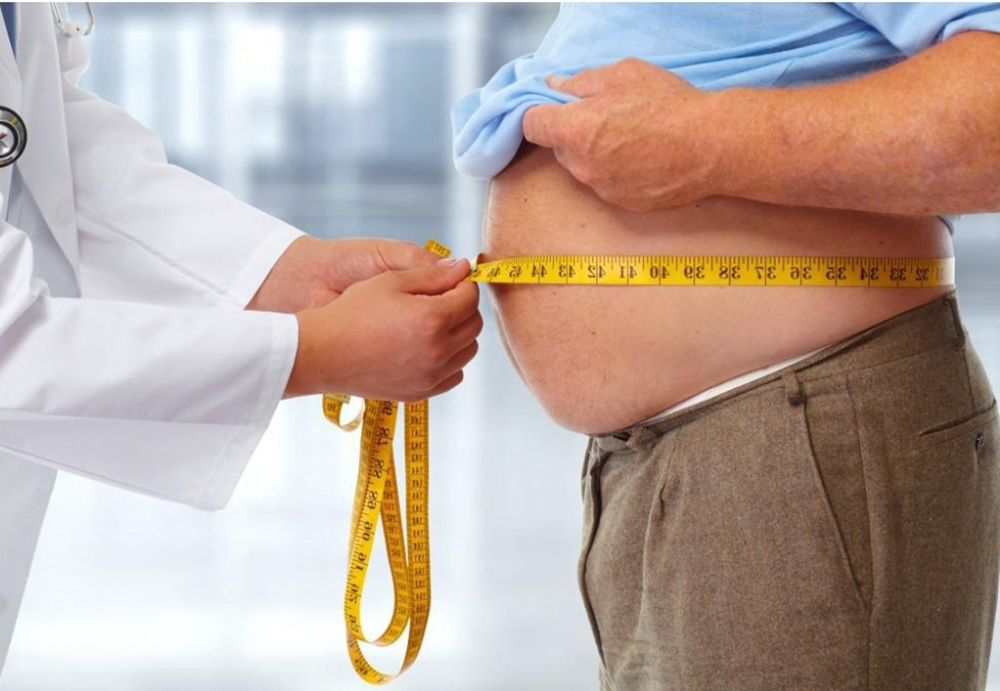By Brian Cahill
If you’re looking at a little more of yourself in the mirror since the start of the pandemic, you are not alone. Quite possibly what is staring back at you has been dubbed the “Quarantine 15,” an extra 15 or so pounds that so many people have added on since the pandemic hit.
To help you (and me!) shed those pounds and return to healthier eating, I spoke with Shore Medical Center Registered Dietitian Mackenzie McCune who shared some excellent advice.
How the pounds packed on quickly
“Life abruptly changed in March and we all of sudden found ourselves changing habits, and not necessarily for the better,” said McCune. “With everything that occurred as a result of the pandemic-gyms closing and parks being off limits, all of a sudden people were spending a lot of time at home and going from an active to a rather sedentary lifestyle. Stress eating, coupled with a real fear of being exposed to the virus had many opting to take less trips to the grocery store and so they stocked up on food.” Social media was filled with novice bakers whipping up homemade breads and cakes. So much so according to Yale School of Medicine, yeast became a difficult commodity to find in the grocery stores.
McCune added that contributing to the weight gain is that many snack foods are high in sodium and fat. While so many were hunkered down at home and those snacks were easily available, people’s habits began to change, explained McCune. “That abrupt change of lifestyle can contribute to a significant weight gain in a short period of time.”
The Consequences of Carrying Quarantine 15
Aside from pants that are suddenly snug in the waist, there are some consequences to adding on pounds. McCune said that the extra weight can put an extra strain on joints like hips and knees, increase blood pressure and can be especially troublesome to individuals who are at risk for Type 2 diabetes.
Insulin Resistance
Someone who is insulin resistant will have a hard time losing weight and it could lead to further problems. Insulin is very important to aid the body in functioning properly. McCune explained that insulin is a vital hormone that regulates blood sugar or glucose in the body. The food we consume is broken down into sugar. That sugar enters the bloodstream and sends a message to the pancreas to release insulin. The insulin then acts like a key to let blood sugar into the cells for us to use as energy. “When you put on that extra weight, fat forms around our cells, blocking receptors that are a lock which let in glucose to create energy for our bodies to work properly. This causes the insulin, which is like a key to that lock to not to be able to fit in the receptor of the cell to let in glucose therefore causing insulin resistance,” said McCune. “Over time, different health complications may arise such as diabetes and neuropathy. Carrying extra weight, especially through the upper middle area and being inactive can put people at risk of being insulin resistant.”
Turning it Around
While it might be easy to grab a bag of chips but with a little planning, it can be just as easy to grab some cut up raw vegetables or an apple. “The best way to jump start a healthy diet and to cut out high fat snacks is to be prepared. Stop bringing cakes, cookies and desserts into the house. Instead, have cut up vegetables and fruits on hand to grab and eat. Frozen fruits and veggies make great smoothies. They are filling, have a longer shelf life and are packed with immune boosting nutrients,” said McCune.
Hydrate, Hydrate, Hydrate
“Sometimes we feel like we are hungry but what we really could just be is dehydrated. Drinking enough water helps to give you energy throughout the day,” said McCune. Her tip when speaking with patients is to remind them to drink the equivalent of half their body weight, for example: if someone weighs 100 lbs. she suggests they drink 50 oz. of water each day.
Get Moving
After a long period of not doing much exercise, McCune said it is best to start slow and keep building. The re-opening of gyms will be a big help. Start with walking 20 minutes after dinner and keep increasing the time and build up from there. Balanced diet, plenty of water, daily exercise and eight hours of sleep is a good Rx for that quarantine 15. “Quick fix diets are not the best choice. Instead we need to train our body in a sustainable way for long term success. A healthy weight lost on average is 1-1.5 lbs. a week,” said McCune. “Stick with it and the weight will come off. It is important to maintain a healthy weight to avoid future health complications down the road.”
Need help getting started on a plan for healthier life style? Call to schedule an appointment for outpatient nutritional counseling with a registered dietitian at 609-653-4600.
Brian Cahill is the Director of Marketing for Shore Medical Center.. He is also on the Board of the Somers Point Business Association, an Adjunct Professor in the School of Business at Stockton University, and is a founding member of Somers Point-Community First, a local volunteer organization.






